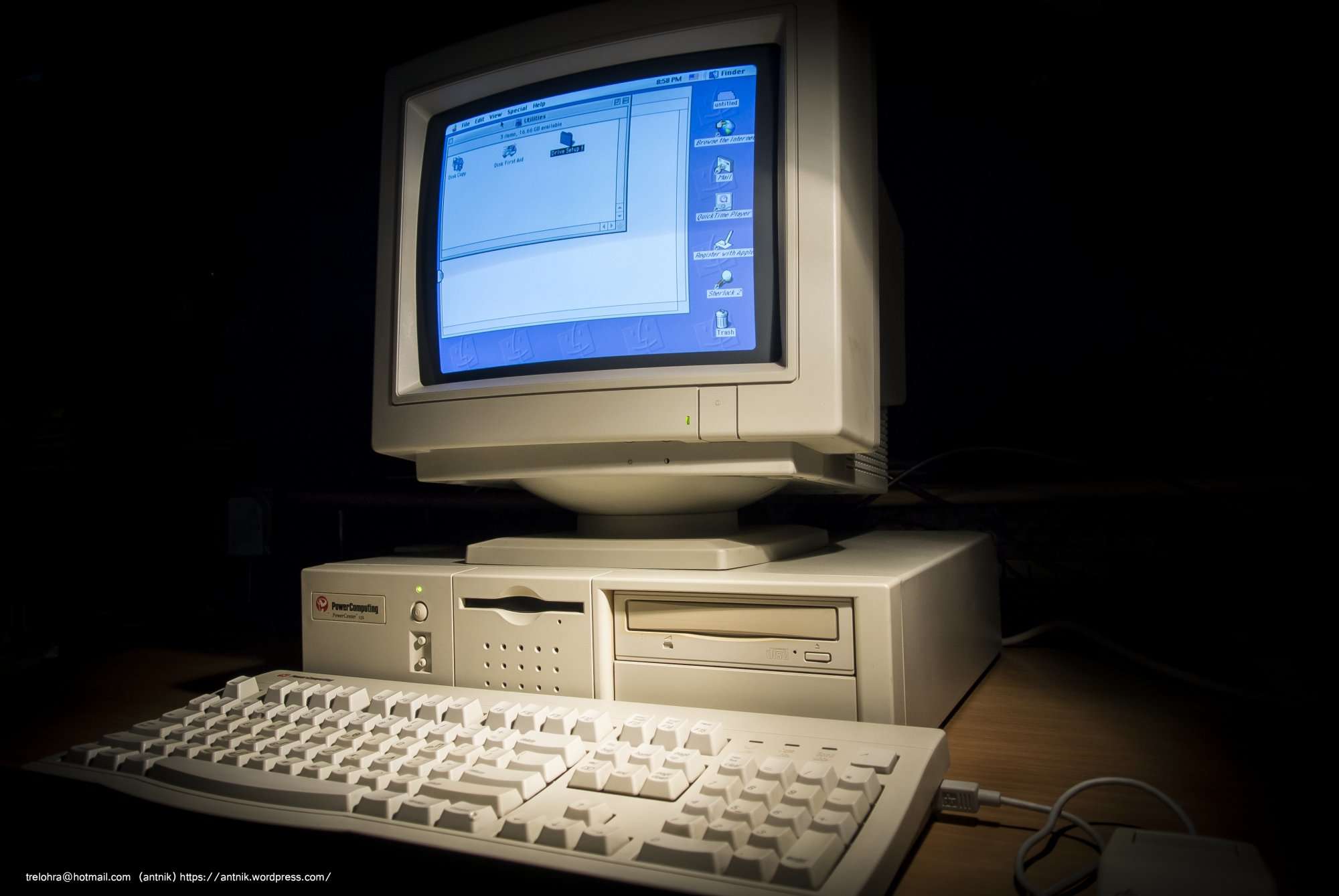 August 5, 1997: Apple gets into a standoff with Power Computing, a maker of Macintosh clones. It marks the beginning of the end for Apple’s mid-’90s strategy of licensing the Mac operating system.
August 5, 1997: Apple gets into a standoff with Power Computing, a maker of Macintosh clones. It marks the beginning of the end for Apple’s mid-’90s strategy of licensing the Mac operating system.
“If the [Mac] platform goes closed, it is over,” predicts Power Computing CEO Joel J. Kocher of Apple’s strategy. “[It’s] total destruction. The kiss of death.” Of course, things don’t turn out exactly like that for Apple…
Mac clones: A divisive strategy
The dispute in question played out over the course of the August Macworld Expo in Boston. The problem came down to the arrival of Apple’s revolutionary new operating system Mac OS 8, which shipped about two weeks earlier.
Unfortunately for Mac clone-makers, a bit of legal jiujitsu on Apple’s part meant that OS 8 was not covered by the original licensing agreement Cupertino signed with the manufacturers of third-party Macintoshes.
Power Computing showcases Mac clones
With Apple becoming skeptical about licensing, Power Computing took to the stage at Macworld to show off impressive new Mac clones. The company showcased desktop and notebook computers powered by the new PowerPC 750 chip.
However, Power Computing bosses warned attendees that they shouldn’t “clap, because I don’t have the confidence that you will ever see this.”
In an attempt to start a grassroots movement celebrating clone Macs, Power Computing employees fanned out through the crowd. They handed out flyers that read, “We demand choice.”
Licensed Macs were once a thing
As strange as it seems today, the idea that Apple should license its operating system was widely voiced by tech fans in the 1990s. They had seen the success of Microsoft’s cross-platform strategy for Windows.
Maybe it was just a case of doing too little too late. But by the time Apple got around to licensing the Mac OS, it wasn’t a financially viable move.
Apple CFO Fred Anderson calculated that the strategy actually lost money for Cupertino. The $50 fee Apple earned for each clone Mac sold did not come close to recouping the revenue lost from people buying third-party Macs instead of Apple computers.
Macworld 1997 was the first Macworld after Steve Jobs returned to Apple. After the big event, he wasted little time ridding Apple of the clone Mac albatross.
Apple buys Power Computing clone Macs biz
Ultimately, Power Computing’s Kocher resigned August 19 after his board of directors refused to take Apple to court for breach of contract. Apple wound up buying Power Computing’s clone Mac business for $100 million. And thus the clone Mac era came to an end.
Do you remember Apple’s struggles with Mac clones? If so, do you have fond or less-than-fond memories of the third-party Macs that arrived at the time? Leave your thoughts and other recollections below.


